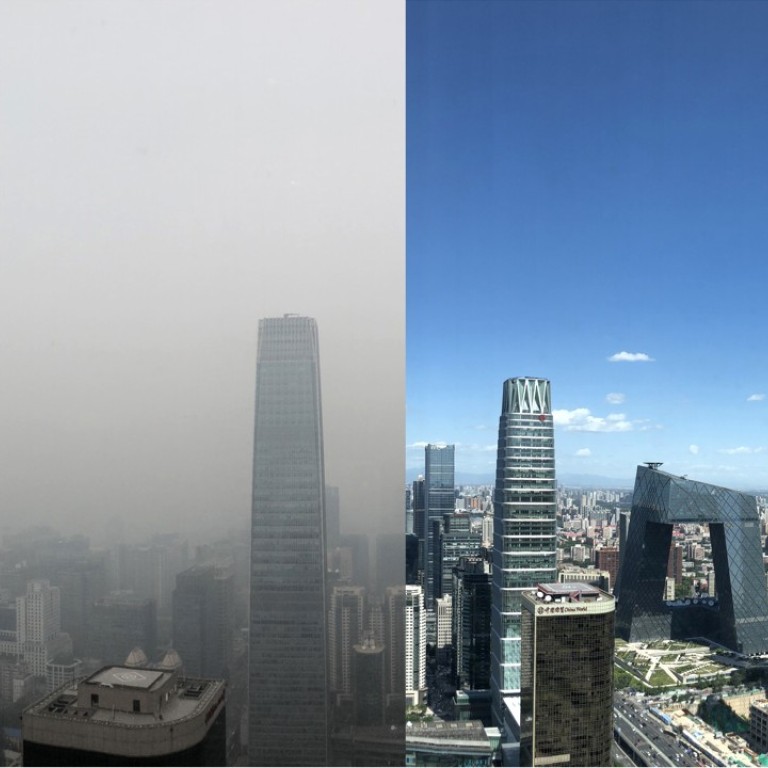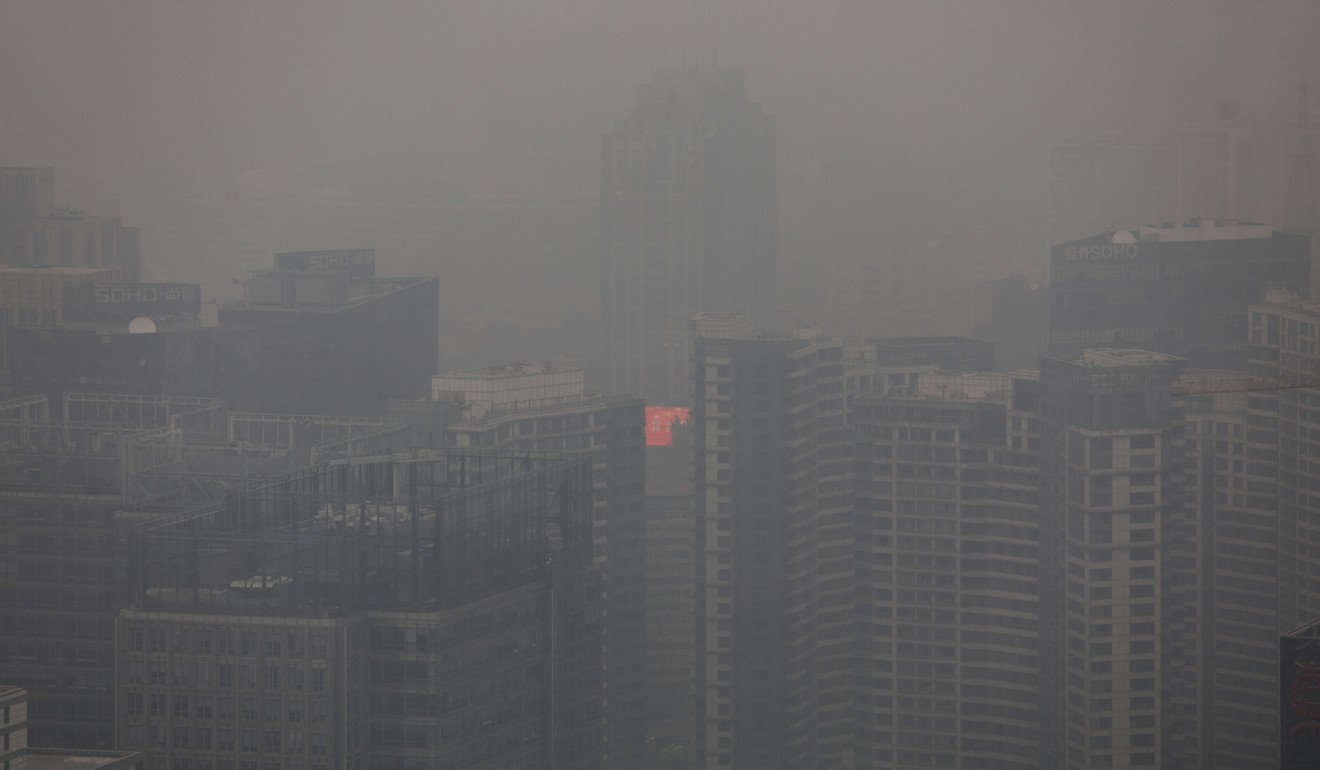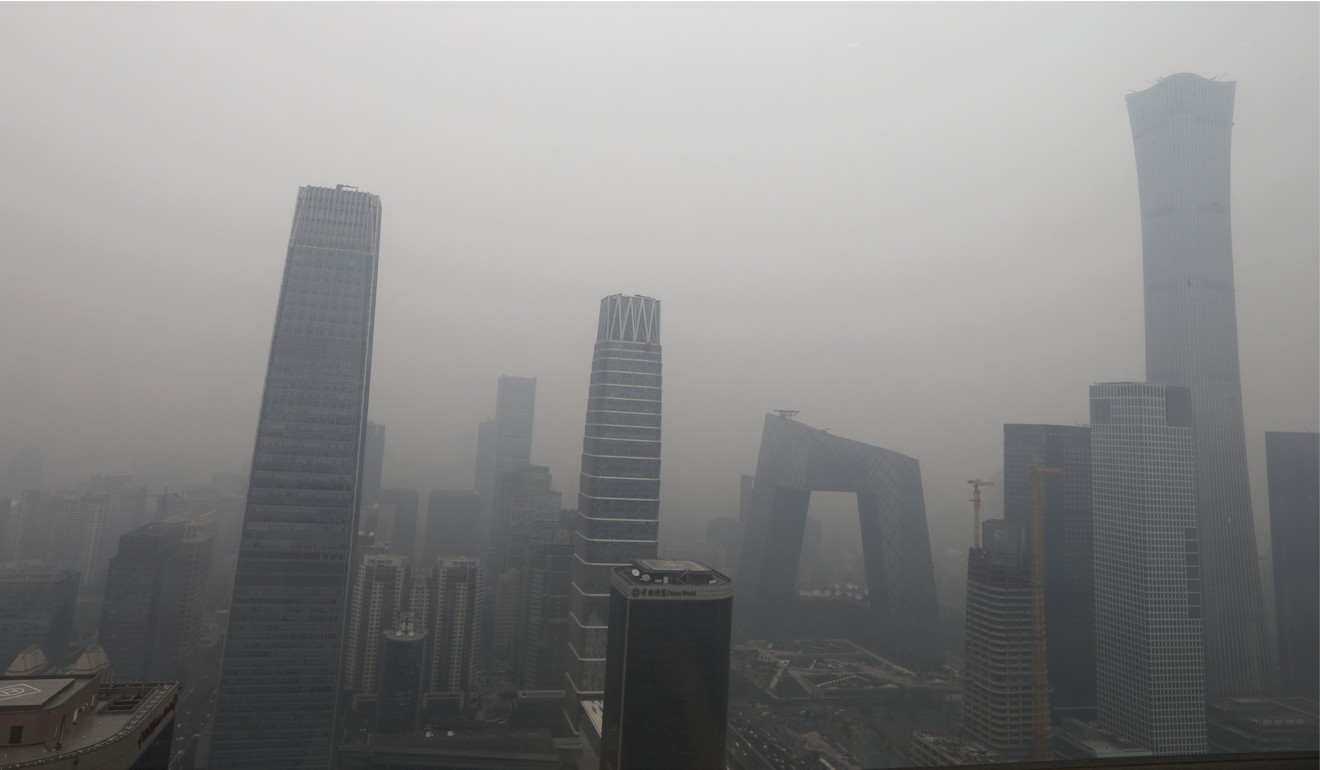
Beijing’s choking smog is back, and the government is blaming perfume and hair gel
After two months of blue skies, capital is again shrouded in a toxic haze
It was too good to last. After nearly two months of sparkling blue skies in Beijing, face masks are back and thick smog is smothering the city.
On Monday morning, a dismal grey haze blanketed the capital. The Air Quality Index hit 213 – classified as heavily polluted on China’s six-level air quality indicator.
It was an abrupt break from the clear skies seen in August and September, which saw the best air quality since the authorities began releasing data on levels of PM2.5 – the tiny, breathable airborne particles deemed particularly harmful to health.
The capital started to see moderate pollution levels on Sunday because of static air. The smog was expected to peak on Monday before improving in the following days with the arrival of a cold front from the north, according to a statement from Beijing’s Environmental Monitoring Centre.

But rather than the heavy coal-burners of polluting plants nearby that usually take the rap, private consumption is being blamed for the deterioration in air quality.
State media dug up a report released by Beijing’s Bureau of Environmental Protection in May, saying household emissions – everything from cooking and hair sprays to perfume and air fresheners – accounted for 12 per cent of the city’s total. That would put household emissions on a par with industrial emissions.
Air pollution is killing 1 million people and costing Chinese economy 267 billion yuan a year, research from CUHK shows
Shi Aijun, deputy dean of the Beijing Academy of Environmental Sciences, told official Science and Technology Daily that daily emissions had been growing – especially from the volatile organic compounds (or VOCs) that give everyday products like perfume, hair gel and air freshener their smell.
But Peng Yingdeng, a researcher from the Beijing Municipal Research Institute of Environmental Protection, said it would be hard to measure the impact of these products on air quality.
“It is difficult to pinpoint exactly how much these consumer products like hair gel contributed to PM2.5 levels since VOCs are not pollutants themselves and produce PM2.5 only after a chemical reaction. At the moment we can only calculate an estimate from the use of these products,” Peng said.

According to state media reports, local emissions accounted for two-thirds of the pollution in Beijing last year, with the rest spreading from neighbouring areas. Vehicle exhaust fumes were the biggest culprit, and households contributed the same level of pollution as industry – mainly printing and vehicle manufacturers, the reports said.
Last winter, it imposed blanket bans on industrial production in the Beijing-Tianjin-Hebei region, but last month the Ministry of Ecology and Environment said it would let steel plants continue producing as long as their emissions met standards.
It has revised down targets for overall emission cuts for the region and surrounding areas over autumn and winter, with 28 cities expected to cut levels of PM2.5 by about 3 per cent from a year ago – less than the 5 per cent proposed in an initial plan seen by the South China Morning Post in August.
This winter’s plan also sets a 3 per cent reduction target – also revised down from 5 per cent in the draft – for the number of days of severe air pollution in those northern cities from October 1 to March 31.

